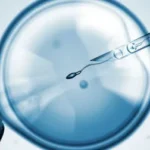Infertility is defined as the inability to conceive after one year of regular, unprotected intercourse. For women above 35, evaluation is recommended after six months because age plays a critical role in reducing fertility potential. According to medical research, nearly 25% of women experience infertility at some point in their lives, and male factors are responsible for almost half of all cases.
Hormonal and Ovulation-Related Causes
Hormonal imbalances are one of the most common reasons women struggle with conception. The ovaries may fail to release eggs regularly due to conditions such as polycystic ovarian syndrome (PCOS). Other contributors include thyroid disorders and elevated prolactin levels, both of which disrupt the reproductive cycle. In such situations, specialists often suggest tests like the amh test price evaluation, which helps measure ovarian reserve and provides valuable insight into fertility potential.
Structural Causes in Women
A healthy reproductive system requires open fallopian tubes and a receptive uterus. Blockages caused by pelvic infections, endometriosis, or scar tissue from previous surgeries may prevent sperm from reaching the egg. Similarly, uterine fibroids or polyps can interfere with implantation. When these barriers exist, couples often turn to advanced solutions like the test tube baby procedure, where fertilization occurs outside the body to bypass structural challenges.
Male Factor Infertility
Around 40–50% of infertility cases are linked to male factors, making male reproductive health equally important. A semen analysis may reveal issues such as low sperm count, reduced motility, or abnormal sperm shape.
Problems with Sperm:
- Low sperm count (oligospermia) makes it difficult to achieve fertilization.
- Poor motility means sperm are unable to swim effectively toward the egg.
- Abnormal morphology (shape) reduces the ability of sperm to penetrate and fertilize an egg.
- In severe cases, azoospermia — the complete absence of sperm — may be detected.
Conditions Affecting Sperm Production:
Varicocele, which is the enlargement of veins in the scrotum, is one of the most common correctable causes of infertility in men. Hormonal imbalances involving the pituitary gland or hypothalamus can also impair testicular function. Infections such as mumps or sexually transmitted infections, genetic disorders like Klinefelter syndrome, and a history of undescended testicles all play a role in reducing sperm quality. Additionally, treatments like chemotherapy or radiation and physical injury to the testicles may harm sperm production.
Problems with Sperm Delivery:
Even when sperm are produced normally, blockages caused by infections, injuries, or surgical procedures (such as vasectomy) can prevent sperm from reaching semen. Sexual dysfunctions — including erectile dysfunction, premature ejaculation, or retrograde ejaculation — may also make natural conception challenging.
Age and Lifestyle Factors
Fertility naturally declines with age. Women are most fertile in their twenties, with a sharp decline after 35. Miscarriage risk also increases, reaching more than 50% for women over 40. Men too experience a decline in sperm quality with advancing age.
Lifestyle choices and environmental influences further impact fertility. Obesity, stress, smoking, and excessive alcohol consumption are well-known factors. In addition, exposure to environmental toxins, high heat from saunas or hot tubs, radiation, and even certain medications can negatively affect sperm health. Many couples in such situations explore assisted reproductive solutions like ivf in pakistan, where advanced medical care offers improved success rates.
Diagnostic Tests and Fertility Evaluation
Before recommending treatments, doctors conduct a thorough evaluation. Women may undergo ultrasounds, hormone testing, or hysterosalpingograms (HSG) to check for blocked tubes. Men provide semen samples to assess sperm count, motility, and morphology, which helps identify underlying problems such as blockages or abnormal sperm development.
If semen analysis shows abnormalities, doctors may investigate further for conditions like varicocele, infections, or hormonal imbalances. In such cases, consulting an infertility specialist in lahore ensures that couples receive tailored advice and access to the most advanced treatment options.
Fertility Treatments and Their Role
Thanks to advancements in reproductive medicine, a wide range of treatments are available today. Intrauterine insemination (IUI) is often suggested for mild infertility, and couples frequently consider options such as iui treatment cost or iui cost in pakistan before proceeding. For more complex cases, doctors may recommend in vitro fertilization (IVF) or ivf treatment in pakistan lahore, depending on the diagnosis.
Men experiencing severe sperm problems — whether due to poor motility, abnormal shape, or very low count — may benefit from procedures like icsi treatment, where a single healthy sperm is directly injected into an egg. Many couples also seek the best fertility doctor in lahore or visit a specialized fertility center in lahore for comprehensive care.
Couples can also benefit from modern facilities at an ivf center in lahore, where cutting-edge technology and personalized care significantly improve success rates. In recent years, procedures such as baby tube treatments have given new hope to couples who previously struggled with infertility.
Final Words
Infertility is a shared challenge affecting both men and women, often caused by hormonal, structural, genetic, lifestyle, or age-related factors. The encouraging news is that modern medicine offers effective solutions — from diagnosis and testing to treatments like IUI, IVF, and ICSI. Whether it’s meeting an infertility specialist in lahore, considering ivf in pakistan, or exploring advanced reproductive technologies, couples today have more opportunities than ever before. With knowledge, professional guidance, and timely action, the dream of parenthood can truly become a reality.






